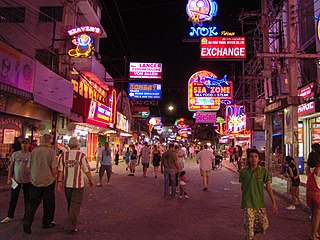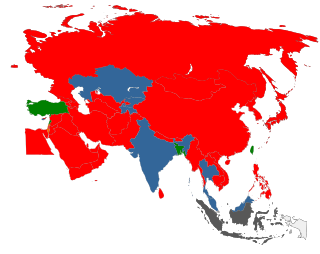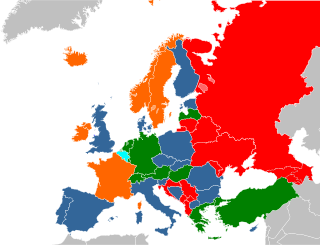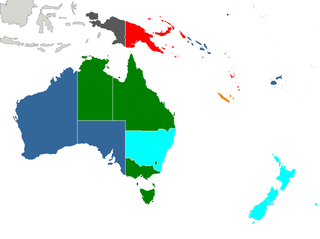Child sex tourism (CST) is tourism for the purpose of engaging in the prostitution of children, which is commercially facilitated child sexual abuse. The definition of child in the United Nations Convention on the Rights of the Child is "every human being below the age of 18 years". Child sex tourism results in both mental and physical consequences for the exploited children, which may include sexually transmitted infections, "drug addiction, pregnancy, malnutrition, social ostracism, and death", according to the State Department of the United States. Child sex tourism, part of the multibillion-dollar global sex tourism industry, is a form of child prostitution within the wider issue of commercial sexual exploitation of children. Child sex tourism victimizes approximately 2 million children around the world. The children who perform as prostitutes in the child sex tourism trade often have been lured or abducted into sexual slavery.

Prostitution in Thailand is not itself illegal, but public solicitation for prostitution is prohibited if it is carried out "openly and shamelessly" or "causes nuisance to the public". Due to police corruption and an economic reliance on prostitution dating back to the Vietnam War, it remains a significant presence in the country. It results from poverty, low levels of education and a lack of employment in rural areas. Prostitutes mostly come from the northeastern (Isan) region of Thailand, from ethnic minorities or from neighbouring countries, especially Cambodia, Myanmar, and Laos. In 2019, the Joint United Nations Programme on HIV/AIDS (UNAIDS) estimated the total population of sex workers in Thailand to be 43,000.

The legality of prostitution in Asia varies by country. There is often a significant difference in Asia between prostitution laws and the practice of prostitution. In 2011, the Asian Commission on AIDS estimated there were 10 million sex workers in Asia and 75 million male customers.
Forced prostitution, also known as involuntary prostitution or compulsory prostitution, is prostitution or sexual slavery that takes place as a result of coercion by a third party. The terms "forced prostitution" or "enforced prostitution" appear in international and humanitarian conventions, such as the Rome Statute of the International Criminal Court, but have been inconsistently applied. "Forced prostitution" refers to conditions of control over a person who is coerced by another to engage in sexual activity.
Prostitution in Chile is legal, subject to regulation, but related activities such as keeping brothels and pimping are prohibited. Several hundred women were registered as prostitutes with the National Health Service.
Prostitution in Paraguay is legal for persons over the age of 18, but related activities such as brothel keeping are prohibited. Prostitution is common in the country. Brothels are also common, even some rural villages have a small bar/brothel on the outskirts.
Prostitution is the business or practice of engaging in sexual activity in exchange for payment. The definition of "sexual activity" varies, and is often defined as an activity requiring physical contact with the customer. The requirement of physical contact also creates the risk of transferring infections. Prostitution is sometimes described as sexual services, commercial sex or, colloquially, hooking. It is sometimes referred to euphemistically as "the world's oldest profession" in the English-speaking world. A person who works in the field is usually called a prostitute or sex worker, but other words, such as hooker, putana, or whore, are sometimes used pejoratively to refer to those who work as prostitutes.

Cambodia is a source, transit, and destination country for human trafficking. The traffickers are reportedly organized crime syndicates, parents, relatives, friends, intimate partners, and neighbors.
Prostitution in Trinidad and Tobago is legal but related activities such as brothel keeping, soliciting and pimping are illegal.
Prostitution in Indonesia is legally considered a "crime against decency/morality", although it is widely practiced, tolerated and even regulated in some areas. Some women are financially motivated to become prostitutes, while others may be forced by friends, relatives or strangers. Traditionally, they have met with customers in entertainment venues or special prostitution complexes, or lokalisasi (localization). However, recently internet forums and Facebook have been used to facilitate prostitute-client relations. In recent years, child sex tourism has become an issue at the resort islands of Batam and Bali.

The legality of prostitution in Europe varies by country.
Indonesia is a source, transit, and destination country for women, children, and men trafficked for the purposes of commercial sexual exploitation and forced labor. The greatest threat of trafficking facing Indonesian men and women is that posed by conditions of forced labor and debt bondage in more developed Asian countries and the Middle East.
Prostitution in Cambodia is illegal, but prevalent. A 2008 Cambodian Law on Suppression of Human Trafficking and Sexual Exploitation has proven controversial, with international concerns regarding human rights abuses resulting from it, such as outlined in the 2010 Human Rights Watch report.
Prostitution in Kosovo is illegal, and can incur a prison sentence of up to sixty days. The Global Fund to Fight AIDS, Tuberculosis and Malaria's HIV Program in Kosovo estimated there to be 5,037 prostitutes in the country. Many women turn to prostitution through poverty.
Prostitution in East Timor is legal, but soliciting and third party involvement for profit or to facilitate prostitution is forbidden. Prostitution has become a problem since the country gained independence from Indonesia in 2002, especially in the capital, Dili. There are estimated to be 1,688 sex workers in the country.
Crime is present in various forms in Vietnam. According to the United States 2016 OSAC Crime report, Hanoi is rated as medium in Overall Crime and Safety Situation.

Prostitution in Oceania varies greatly across the region. In American Samoa, for instance, prostitution is illegal, whereas in New Zealand most aspects of the trade are decriminalised.
Prostitution in Fiji is legal, but most activities connected with it are illegal: brothel keeping, pimping and buying or selling sex in public. Street workers make up the bulk of Fiji's prostitutes. Many of the prostitutes are Asian, especially Chinese that provide sexual services for the growing number of tourists arriving in the country and also locals. Some come into the country on student visas. In 2014, it was estimated that there were 857 sex workers in Fiji. Even though buying and selling sex in public is illegal in Fiji, police have no legal authority to arrest prostitutes without an official report being lodged for the police to take action.
Prostitution in Papua New Guinea is generally regarded as illegal but widely practiced with the laws rarely enforced. Prostitution occurs on the streets, in bars, brothels and in logging, mining, and palm oil areas. In 2010 it was estimated there were 2.000 prostitutes in the capital, Port Moresby. The drought in 2016 caused a rise in prostitution. Many of the women have turned to sex work due to poverty or unemployment.
Organised crime in Indonesia refers to planned crimes in Indonesia that could be perpetrated by either a political party or Indonesian gangs, also referred to as preman. The illegal activities may include corruption, cybercrime, money laundering, violence, felonies, extortion, racketeering and drug trafficking.






